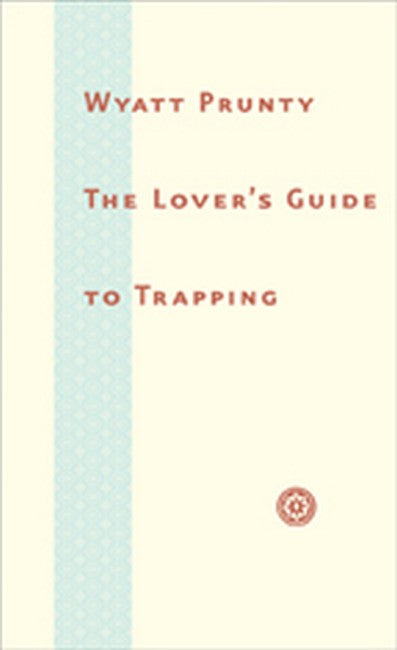Wyatt Prunty's eighth collection, The Lover's Guide to Trapping, opens with a Homeric mole who tunnels the yard then disappears, a nervous alpha dog convinced she gets less food than her sister because she eats faster, and a house wren whose loud expectation is that she be let in. And there are others who populate the pages of this book, one stray cat, one ghost, but many who are human, soldiers, prisoners, wide-eyed children, matriarchs, Verdi in despair over having cast a plump Violetta who cannot play her role as a consumptive. All of those described here are vulnerable, some of them searingly so, and all are acutely aware of just how angular their worlds can be, whether accompanied by terror or hilarity. ''Here is the music of our earth and its creaturesthe field, the wren, the farm, the kit, the fawn, the insomniac, the soldier in his coffin, the trapper and the trapped. Individually, each of these poems finds its own ideal shape, its own ideal melody. But what gives this book its final, aching beauty is the closely mortised fit of the poems, one to all others, and the profoundly sane, faithfully tender voice of Wyatt Prunty. The concluding stanza of ''Time's Train'' will endure in me forever: ''More fold than tear, so no one going anywhere,/Only seeming to. Rails parallel: time's train./ On the porch his wife sings, brushing her hair./ And everything he's thought he thinks again.'' What an incredibly beautiful piece of work.''Tim O'Brien, author of The Things They Carried''The Lover's Guide to Trapping includes a wonderful poem entitled, 'Incident in the Sublime' that distinguishes a human need from mere magnitude. And there is 'Fields,' which begins, 'Furrowed as the heaviest brow yet plain / As our forgetfulness,' or 'Addio del passato,' which beautifully begins, 'The final chord will not end without / Memories of dissonance.' This book brings us once again the poems of a considering mind, which eloquently contemplates both the momentous and the everyday, memorably distinguishing between such things as choice and will, history and myth. A fine new collection.''Richard Wilbur

